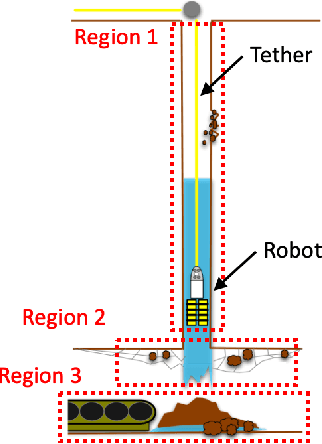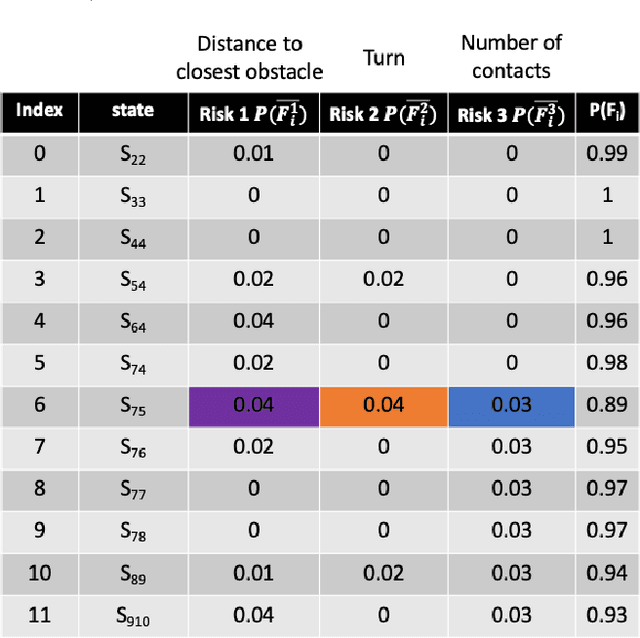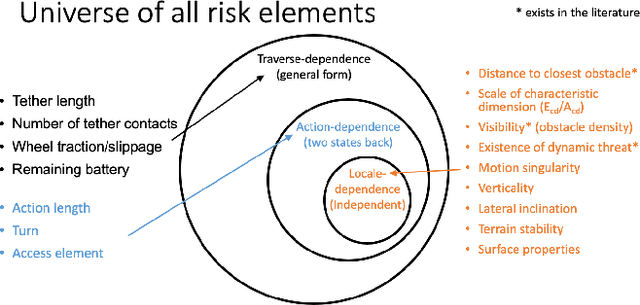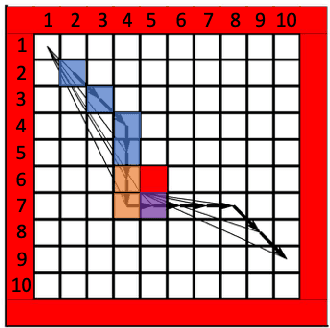Robot Motion Risk Reasoning Framework
Paper and Code
Sep 05, 2019



This paper presents a formal and comprehensive reasoning framework for robot motion risk, with a focus on locomotion in challenging unstructured or confined environments. Risk which locomoting robots face in physical spaces was not formally defined in the robotics literature. Safety or risk concerns were addressed in an ad hoc fashion, depending only on the specific application of interest. Without a formal definition, certain properties of risk were simply assumed but ill-supported, such as additivity or being Markovian. The only contributing adverse effect being considered is related with obstacles. This work proposes a formal definition of robot motion risk using propositional logic and probability theory. It presents a universe of risk elements within three major risk categories and unifies them into one single metric. True properties of risk are revealed with formal reasoning, such as non-additivity or history-dependency. Risk representation which encompasses risk effects from both temporal and spatial domain is presented. The resulted risk framework provides a formal approach to reason about robot motion risk. Safety of robot locomotion could be explicitly reasoned, quantified, and compared. It could be used for risk-aware planning and reasoning by both human and robotic agents.
 Add to Chrome
Add to Chrome Add to Firefox
Add to Firefox Add to Edge
Add to Edge